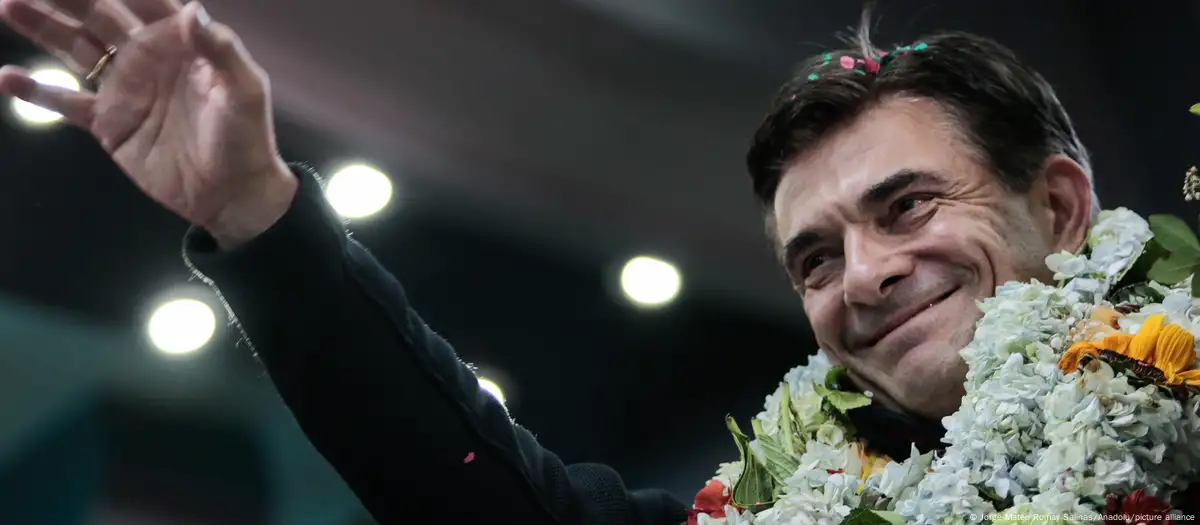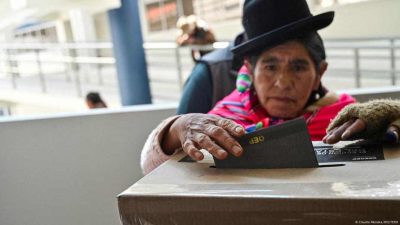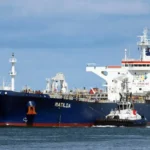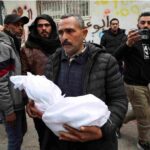
Rodrigo Paz contradicted expectations and became the first conservative to win a presidential election in the country in 20 years. Now, his mission is to get Bolivians out of the worst economic crisis in four decades.
Three months ago, Rodrigo Paz was a little-known Bolivian opposition senator with a famous father and dubious protection as mayor. Now, he is the first conservative to win a presidential election in the country in 20 years.
To everyone’s surprise, centrist Paz, 58, defeated his much more prominent right-wing opponent, former president Jorge “Tuto” Quiroga, securing victory in the second round of this Sunday’s presidential election (10/19) in Bolivia. He takes over as the country’s next head of state on November 8.
In his speech to supporters on Sunday night, Paz thanked the support received to win the round and promised to “reopen” the country to the world and work with all sectors interested in coming together to “escape” the crisis in which his country finds itself.
After learning the preliminary results that gave him victory, Paz thanked the presidents who congratulated him and stated that “Bolivia is gradually recovering its international presence”, after having lost this space “geopolitically and geoeconomically” in the last two decades.
The politician maintained that “the new dimension” he seeks to build “will be with hands crossed for the interior of the country, to work with everyone, men and women, from parliament, social organizations” and other sectors, with the objective of “moving forward”.
Ruined economy
The senator inherited an economy in ruins after 20 years of government by the Movement to Socialism party, founded by the charismatic former president Evo Morales (in office from 2006 to 2019). The acronym peaked during the commodities boom of the early 2000s, but natural gas exports stagnated, and its statist economic model of generous subsidies and fixed exchange rates has since collapsed.
Hampered by the shortage of US dollars and fuel, which left them queuing for days, participants from all over the country, on Sunday, chose Peace to get them out of the worst economic crisis in four decades. Paz proposed important reforms, but at a more gradual pace than Quiroga, who advocated support for an International Monetary Fund (IMF) bailout and a fiscal shock program.
Unknown face with known name
Son of former president Jaime Paz Zamora, who governed from 1989 to 1993, and Spanish woman Carmen Pereira, Rodrigo Paz was born in Santiago de Compostela, Spain, and spent his early childhood there. He is an economist and studied international relations, in addition to having extensive experience in the public sector.
His father, one of the founders of the Marxist-inspired Revolutionary Left Movement in the 1960s, was exiled to Spain to escape repression by General Hugo Bánzer, one of the dictators who ruled Bolivia from 1964 to 1982. Paz Zamora returned to Peru when Bánzer resigned in 1978. Years later, in an ironic twist, he made a political pact with the man who had imprisoned and exiled.
Evo Morales in the vote: even weakened by a split in the party, the former president remains a destabilizing factor | Ernesto Benavides/AFP
When Paz Zamora ran for president in 1989, a vote sent the country’s president to Bolivia’s Congress, and the socialist struck a deal with the dictator-turned-conservative politician to ensure victory.
His tenure brought strict fiscal discipline and free-market reforms to control inflation, freeing investors but disappointing his longtime left-wing supporters, who saw inequality worsen and unemployment persist.
Paz began his political career in his father’s left-wing party, but later, like the elder Paz, he reshaped himself as a conservative committed to pragmatic and business-oriented reforms. He started as a deputy in the lower house of Congress before becoming mayor of Tarija, in the south of the country, from 2015 to 2020. Since then, he has been a senator.
Tarija did not welcome its illustrious mayor: in both the first and second rounds of the presidential elections, Paz’s party lost in the region, even though it won six of the country’s nine departments.
As mayor, he modernized downtown Tairja with promenades and vast squares, which left many working-class residents feeling abandoned as the oil-rich region suffered from falling incomes. Peace issues in the public sector to reduce a growing deficit have infuriated unions.
From underdog to president-elect
When the Bolivian election campaign began in early August, the soft-spoken senator from Tarija tried to get selected for the first televised debates. Security was called at the first debate, to remove a group of his supporters who interrupted the live broadcast, holding up a sign with Paz’s contact information so he could be invited to the next one.
Before the August 17 election, he was polling near the bottom of the eight candidates. In small campaign stops in the Andean highlands, he had difficulty filling the auditoriums.
His choice of former police captain Edman Lara as his running mate was almost accidental – a last-minute solution after Paz’s first choice dropped out. But “Captain Lara”, as he is known, boosted Paz’s campaign, propelling the ticket to victory in both electoral rounds.
The story of Lara – fired from the police in 2023 for reporting corruption in viral videos on TikTok – amplified Paz’s anti-corruption message and resonated with the indigenous, working-class residents of Bolivia’s highlands, who once formed the base of the Movement to Socialism party.
The duo mounted an agile campaign, crisscrossing cities and rural communities to promote unsophisticated, beer-fuelled events with the message of “capitalism for all”. Serving grilled meat and skimping on fancy exteriors, they contrasted with the wealthy Quiroga and his large campaign budget.
Despite peace plans to eliminate fuel subsidies, devalue the Bolivian currency and reduce public investment, the populist tone of his campaign convinced investors that he would move at a palatable pace.
They also promised cash handouts to the poor and other benefits to cushion the impact of the harshest cuts, appealing to a diverse country’s election spectrum.
High inflation, fuel shortages
Bolivia is in the midst of an economic crisis, with annual inflation of 23% and chronic fuel shortages.
One of the main peace challenges at the beginning of his mandate will be to find a way out of the fuel crisis and overcome the serious shortage of dollars – the result of large government subsidies and the reduction in gas exports –, while controlling the increase in the cost of living.
Another challenge is being able to become a consensus leader and gain the trust of a society that is divided. An analysis of the results of Sunday’s second round illustrates the divisions in the country, with the more conservative and richer east largely supporting right-wing candidate Jorge Quiroga, while the more impoverished west, with its large indigenous population, supported Paz.
According to analysts, these trends point to a resurgence of traditional divisions between east and west, as well as between urban and rural areas.
Morales’ influence
Former president Evo Morales, prevented from running again this year, continues to have influence, as he is still very popular, especially among indigenous Bolivians.
He remains a potential destabilizing factor, having cast a long shadow over the campaign and, in the first round, managed to have almost one in five elections annulled his vote due to his exclusion from the election.
 Woman casts vote: Peace had greater support from the poorest population and indigenous people | Claudia Morales/Reuters
Woman casts vote: Peace had greater support from the poorest population and indigenous people | Claudia Morales/Reuters
This, even though internal divisions in his party, the Movement to Socialism, have weakened Morales politically.
The former president is also the subject of an arrest warrant for human trafficking due to an alleged sexual relationship with a minor – an accusation he denies.
Fresh start in relations with the USA
Between the first round and the second round this Sunday, Paz visited Washington, speaking at think tanks and expressing the truth that improving relations with the United States is necessary for Bolivia’s success.
This could mark a major shift for Bolivia after years of antipathy toward the United States that dates back to 2008, when Morales expelled the U.S. Drug Enforcement Agency (DEA) and the American ambassador. Since then, Bolivia has allied itself with Venezuela and other left-wing governments in the region and with world powers such as China and Russia.
Also on Sunday, US Secretary of State Marco Rubio said in a statement that the Peace Victory “marks a transformative opportunity for both nations.
“The United States stands ready to partner with Bolivia on shared priorities, including ending illegal immigration, improving market access for bilateral investments, and combating transnational criminal organizations to strengthen regional security.”
Originally published by DW on 10/20/2025
Source: https://www.ocafezinho.com/2025/10/20/que-desafios-terao-rodrigo-paz-eleito-presidente-da-bolivia/

